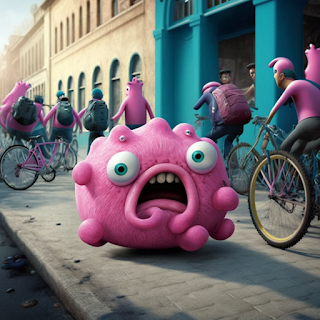From Spectator to Cyclist: How Watching Bicycle Events Motivated Me to Get Fit
At first, I didn't think much of it. I would simply sit on the sidelines and cheer on the cyclists, wishing I could be as fit and fast as they were. But as time went on, I started to feel increasingly self-conscious about my own physique. I would try to hide in the crowd, hoping nobody would notice how out of shape I was.
Then one day, something inside me clicked. Instead of feeling sorry for myself, I realized that I had the power to change my situation. I didn't have to sit on the sidelines anymore. I could be one of those fit, toned cyclists too.
So I decided to take action. I started going to the gym regularly, working out and building up my endurance. I also started eating a healthier diet, cutting out junk food and focusing on wholesome, nutritious meals. It wasn't easy, but I was determined to make a change.
As I started to get in better shape, I began to feel more confident in myself. I no longer felt like a big blob, but like a strong, capable athlete. And soon enough, I was ready to take on my first cycling event.
I'll never forget that day. I was nervous, but also excited to finally be a part of the action. As I lined up at the starting line, surrounded by other cyclists, I felt a sense of camaraderie and community that I had never experienced before.
And when the race started, I felt a rush of adrenaline like nothing else. I pedaled as hard as I could, feeling the wind in my face and the sun on my skin. It was tough, but I was determined to finish the race.
And finish I did. I may not have come in first place, but I felt like a winner nonetheless. I had accomplished something I never thought was possible. I had gone from being a spectator to a participant, from feeling like a big blob to feeling like a fit, strong cyclist.
So if you're in a similar situation to where I was, watching from the sidelines and feeling like you could never be as fit as those cyclists speeding by, I urge you to take action. You have the power to change your situation. You can get fit and become one of those cyclists too.
It won't be easy, but it will be worth it. The feeling of accomplishment you'll get when you cross that finish line will be like nothing else. And who knows, maybe one day you'll inspire someone else to do the same.



Comments
Post a Comment